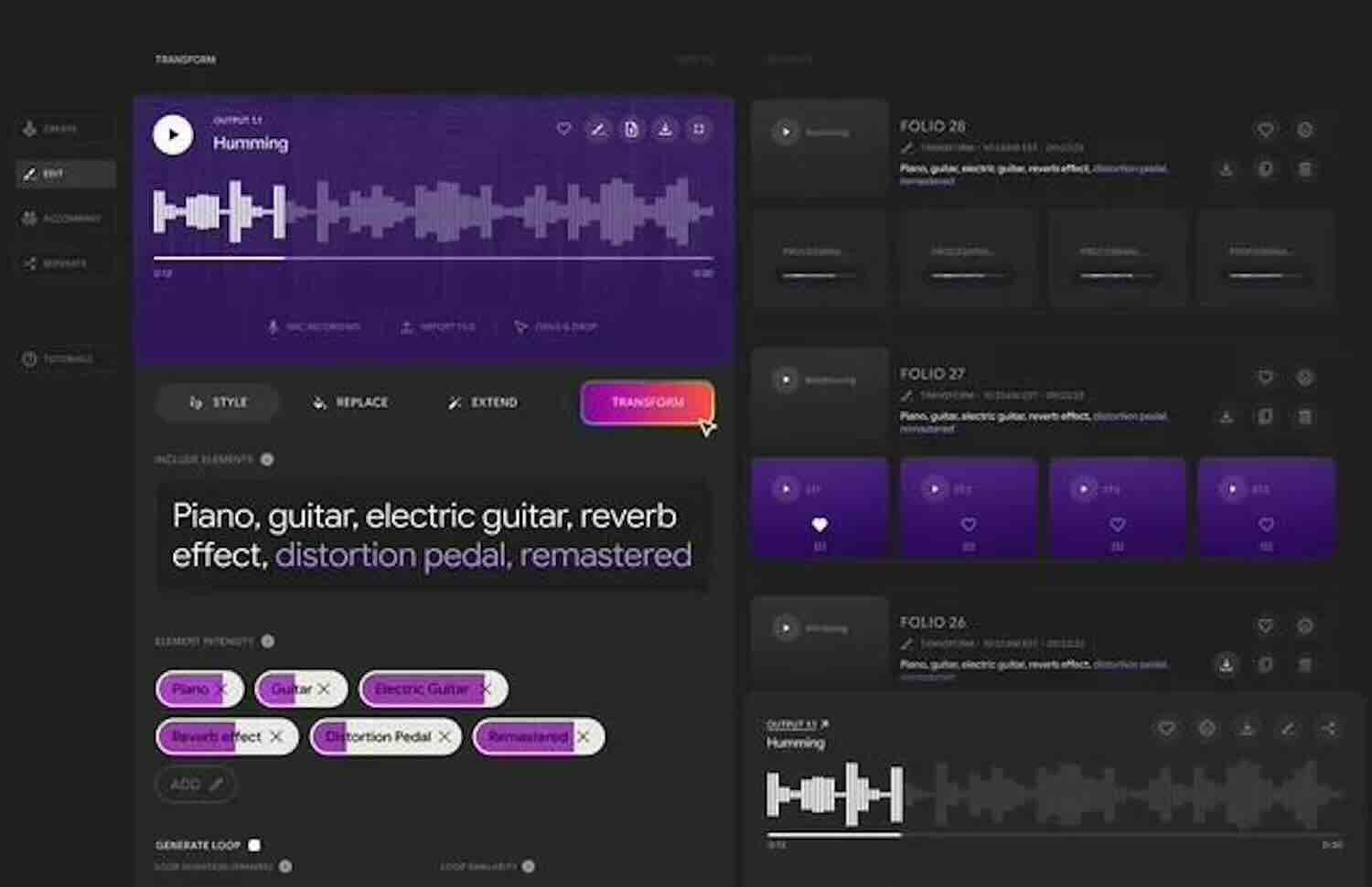On November 17, 2023, YouTube is experimenting with new AI synthesis features that allow users to create music by inputting text or humming a melody.
One of these features, called Dream Track, is already available to select creators on the YouTube platform. This feature can automatically generate 30-second music clips based on the styles of various famous artists. It can emulate nine different artists, all of whom are development partners of YouTube. Additionally, YouTube has introduced some new tools capable of generating music from humming sounds.

"YouTube has stated they are currently testing the Dream Track feature with 'a small group of creators in the US.' This feature can produce music in the styles of nine artists: Alec Benjamin, Charlie Puth, Charli XCX, Demi Lovato, John Legend, Papoose, Sia, T-Pain, and Troye Sivan.
The official showcase video demonstrates how music can be created in the style of Charlie Puth, with suggestions like 'a ballad about contrasting attraction, an optimistic acoustic piece,' or 'a sunny morning in Florida,' for a T-Pain style R&B track. The software can generate lyrics, background music, and sounds synthesized by AI in the style of these artists.
In addition to Dream Track, YouTube also showcases several other AI music features designed to enable users to create music without using traditional musical instruments. In the demo video, YouTube illustrates how to create a saxophone piece by combining a hummed melody with text prompts like 'Saxophone Solo.' There are also tutorials on turning beatboxing into drum loops, vocals into orchestral music, or MIDI keyboard chords into a choir.
YouTube mentions that participants in the AI Music Sandbox will be able to experiment with these tools by the end of this year.
These new AI tools are provided by Lyria, a music generation model developed by Google's DeepMind. In a blog post by DeepMind, the company states that music created by Lyria will be tagged with a blurry SynthID image that is inaudible to the human ear and can be retained when the music is altered. Therefore, even if someone adds noise to the music, compresses it into an MP3 file, or speeds it up, theoretically, it can still be said to contain sounds generated by AI from Lyria.
This seems to contradict the plan announced by YouTube just a few days ago, stating they would remove or label AI-generated content mimicking famous individuals in the coming months."
Vn-Z.vn team references the source from YouTube.
One of these features, called Dream Track, is already available to select creators on the YouTube platform. This feature can automatically generate 30-second music clips based on the styles of various famous artists. It can emulate nine different artists, all of whom are development partners of YouTube. Additionally, YouTube has introduced some new tools capable of generating music from humming sounds.

The official showcase video demonstrates how music can be created in the style of Charlie Puth, with suggestions like 'a ballad about contrasting attraction, an optimistic acoustic piece,' or 'a sunny morning in Florida,' for a T-Pain style R&B track. The software can generate lyrics, background music, and sounds synthesized by AI in the style of these artists.
In addition to Dream Track, YouTube also showcases several other AI music features designed to enable users to create music without using traditional musical instruments. In the demo video, YouTube illustrates how to create a saxophone piece by combining a hummed melody with text prompts like 'Saxophone Solo.' There are also tutorials on turning beatboxing into drum loops, vocals into orchestral music, or MIDI keyboard chords into a choir.
YouTube mentions that participants in the AI Music Sandbox will be able to experiment with these tools by the end of this year.
These new AI tools are provided by Lyria, a music generation model developed by Google's DeepMind. In a blog post by DeepMind, the company states that music created by Lyria will be tagged with a blurry SynthID image that is inaudible to the human ear and can be retained when the music is altered. Therefore, even if someone adds noise to the music, compresses it into an MP3 file, or speeds it up, theoretically, it can still be said to contain sounds generated by AI from Lyria.
This seems to contradict the plan announced by YouTube just a few days ago, stating they would remove or label AI-generated content mimicking famous individuals in the coming months."
Vn-Z.vn team references the source from YouTube.
